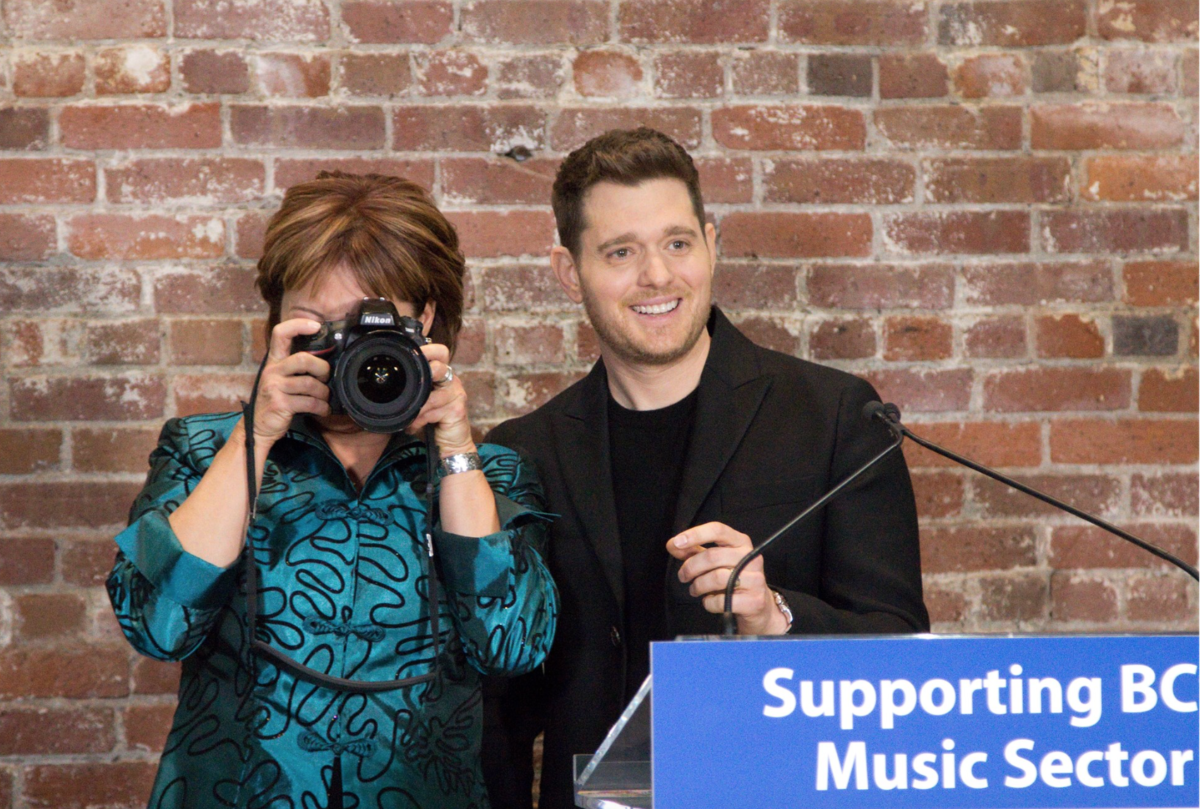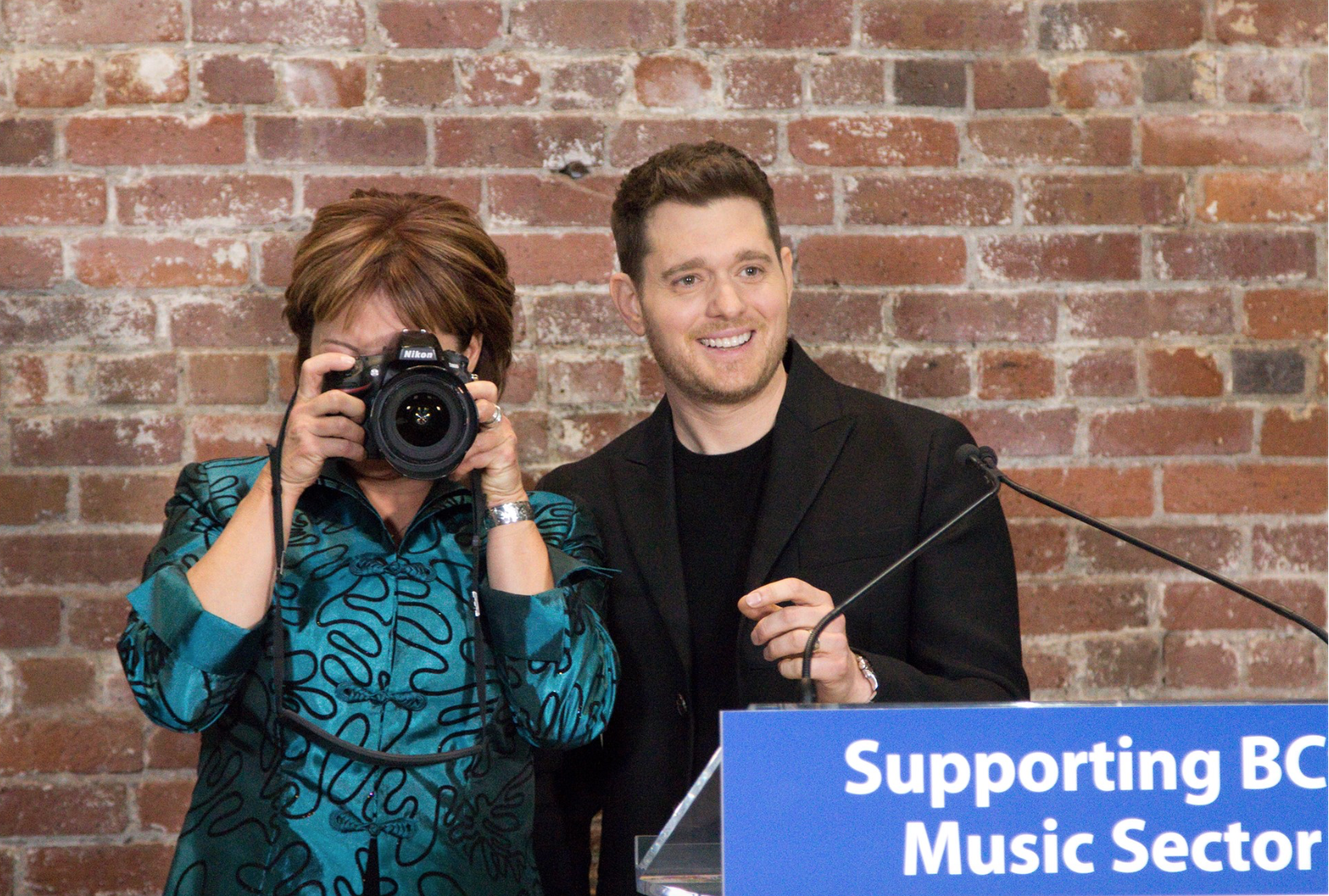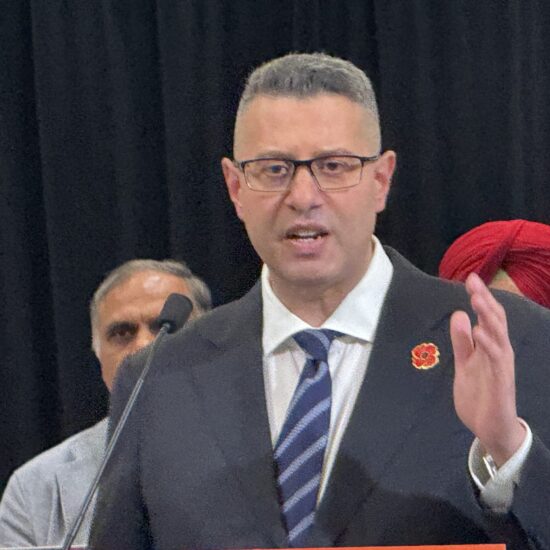
Bob Mackin
First, add the Flying Lizards’ “Money (That’s What I Want)” and the late, great Jeff Healey’s cover of Led Zeppelin’s “Communication Breakdown” to your playlist. Because those song titles are the themes of what you are about to read.
You might remember Feb. 11, 2016, when Premier Christy “Amor de Camera” Clark clowned around during a photo op with Burnaby crooner Michael Buble. Clark was at Bryan Adams’ Warehouse Studio to dole out a $15 million grant for the fledgling B.C. Music Fund.
Documents, however, show that the head of the national music industry lobby really wanted a tax break instead.

Premier Christy Clark (left) and Michael Buble. (BC Gov)
According to email released under freedom of information to the NDP, Music Canada president Graham Henderson was quite clear to Finance Minister Mike de Jong’s chief of staff, Brian Menzies.
“In my meeting with Neil [Sweeney, corporate policy deputy minister] and Michelle [Cadario, deputy chief of staff], they told me there was some confusion about exactly what we were asking for,” Henderson wrote. “That some officials concluded it was a grant. I made it clear to the Minister’s satisfaction that such was not the case. I am attaching a revised document that removes ALL references to a grant.”
Menzies explained that when the government writes a cheque, “it’s called a grant; when we allow for a rebate on your taxes, it’s a credit.”
“Will your folks be waiting post filing of taxes for a refund (tax credit) — or will they be seeking out a financial contribution for which is greater than taxes submitted? The film tax credit is a misnomer — it’s a grant. You’re looking for 15 million (to) be redistributed — correct — not for us to offset tax revenues by 15 million. Please clarify.”
Henderson put it bluntly on Jan. 15, 2016.
“Music Canada is proposing a fully-refundable music production tax credit. The application process would be similar to the British Columbia Production Services Tax Credit but with adaptations to suit music business activities including production, distribution, touring, capital investment in facilities, and tourism generated by music festivals and live music. In addition, we would offer suggestions as to how to cap the tax credit at $15 million annually through a combination of pre-approvals an maximum allowable credit amounts, I though this was clear from our documentation, but it appears different folks characterize the request with different terminology. Is this clear now?”
Henderson contacted Menzies again in the morning of Jan. 19 and changed his tune. If they couldn’t rock out to a grant, they’d roll with a tax credit.
“Regarding the format of the strategy, I have had a lengthy conversation with an analyst, Paul Flanagan. And Brad has spoken to Michelle Cadario. It sounds like we just need to sort out what works best for MC and Finance — fully refundable tax credit or grant; the Premier’s office is agnostic.”
Later the same day, one of Music Canada’s B.C. lobbyists chimed-in. None other than Brad Zubyk, who plays the “zu” in the Liberal insider “band” Wazuku.
“I know you guys are swamped ahead of the budget but just following up on the e-mail from Graham Henderson,” Zubyk wrote to Menzies. “Graham has been in discussions with finance officials and just wants to verify that your Minister has no preferred option. Music Canada is good with either scenario but Is looking for your (very quick) input.”
NDP critic Spencer Chandra Herbert wonders who really benefited from the grant, because, he said, it looks more like “the Premier’s buddies getting a win for their client.”
Chandra Herbert said he is in favour of greater support for the creative sector if it is done the right way with proper business planning.
“With a grant, you can throw the money out the door. With a tax credit, there is more accountability,” Chandra Herbert said.
“It’s like pick your poison, there are problems with either a tax credit or grant,” said Jordan Bateman of the Canadian Taxpayers’ Federation. “Either way, this is not what we should be paying tax money for. Tax money should be going for necessities.”
Bateman said $15 million could have been better used to seismically upgrade schools or battle the fentanyl overdose crisis.
In the end, the Premier got her photo op with superstar Buble and the music industry scored some free dough.











